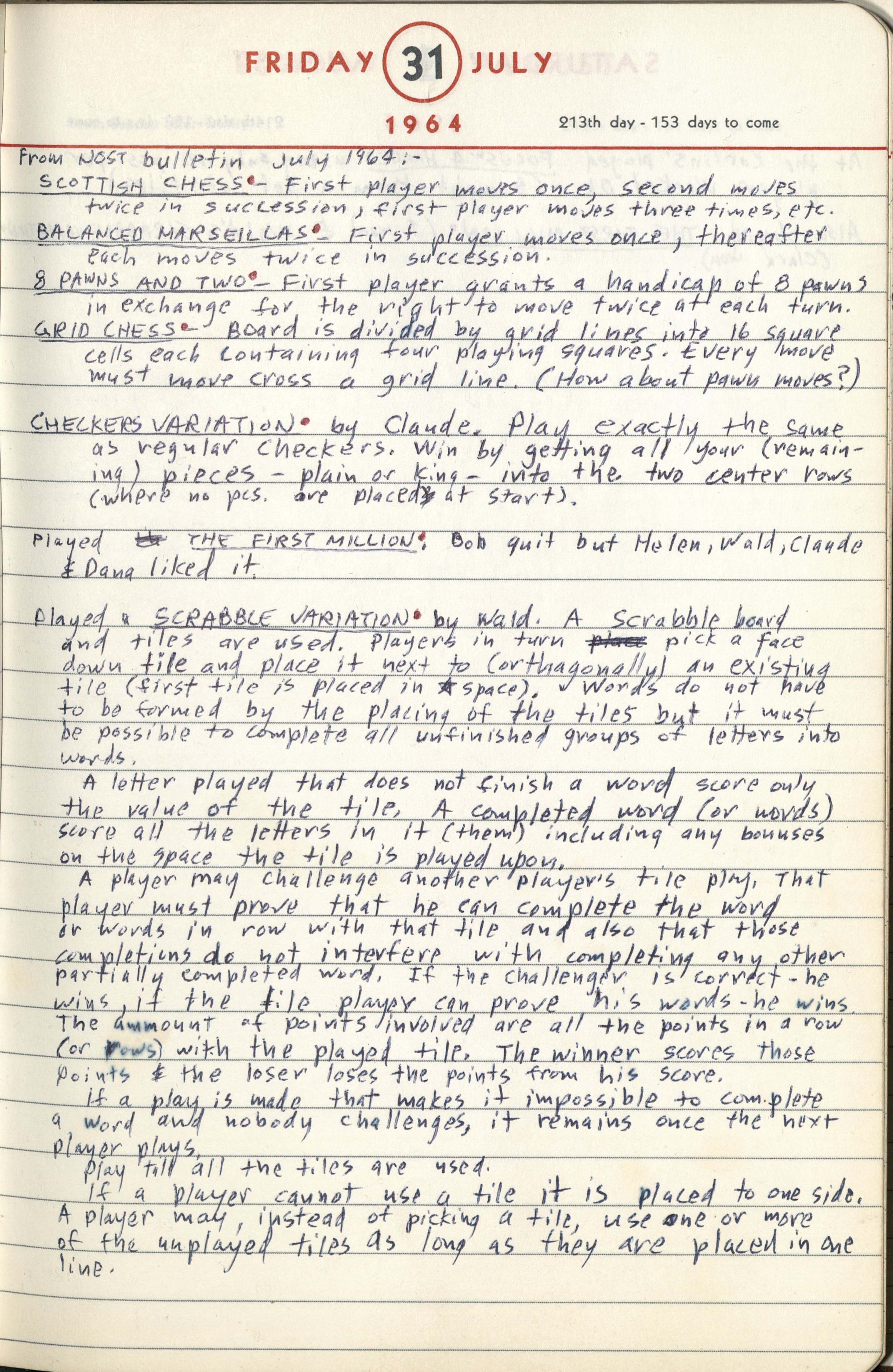1964_Sackson_233_July 31.jpg: Page #1
Original title: 1964_Sackson_233_July 31.jpg

Transcription
Friday 31 July 1964 213th day - 153 days to come
From NOST bulletin July 1964: - SCOTTISH CHESS - First player moves once, second moves twice in succession, first player moves three times, etc. BALANCED MARSEILLAS - First player moves once, thereafter each moves twice in succession. 8 PAWNS AND TWO - First player grants a handicap of 8 pawns in exchange for the right to move twice at each turn. GRID CHESS - Board is divided by grid lines into 16 square cells each containing four playing squares. Every move must move cross a grid line (How about pawn moves?)
CHECKERS VARIATION by Claude. Play exactly the same as regular Checkers. Win by getting all your (remain- ing) pieces - plain or king - into the two center rows (where no pcs. are placed at start).
Played th THE FIRST MILLION. Bob quit but Helen, Wald, Claude
& Dana liked it.
Played a SCRABBLE VARIATION by Wald. A Scrabble board
and tiles are used. Players in turn place pick a face
down tile and place it next to (orthagonally) an existing
tile (first tile is placed in [star] space). Words do not have
to be formed by the placing of the tiles but it must
be possible to complete all unfinished groups of letters into
words.
A letter played that does not finish a word score only
the value of the tile. A completed word (or words)
score all the letters in it (them) including any bonuses
on the space the tile is played upon.
A player may challenge another player's tile play. That
player must prove that he can complete the word
or words in row with that tile and also that those
completions do not interfere with completing any other
partially completed word. If the challenger is correct - he
wins, if the tile player can prove his words - he wins.
The amount of points involved are all the points in a row
(or rows) with the played tile. The winner scores those
points & the loser loses the points from his score.
If a play is made that makes it impossible to complete
a word and nobody challenges, it remains once the next
player plays.
Play till all the tiles are used.
If a player cannot use a tile it is placed to one side.
A player may, instead of picking a tile, use one or more
of the unplayed tiles as long as they are placed in one
line.